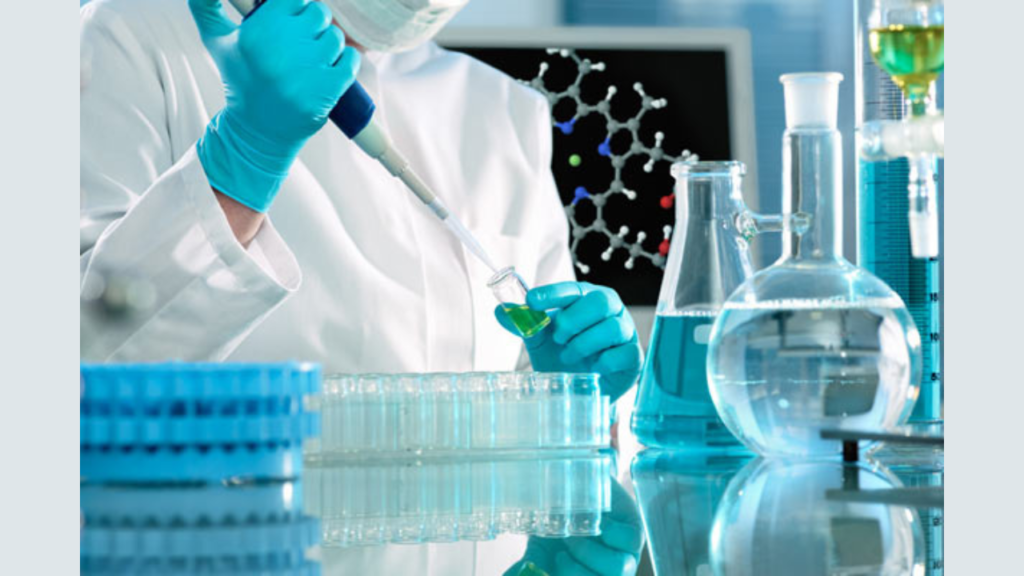Understanding NABL Certified Labs: Ensuring Accuracy & Reliability
Introduction to Quality & Accreditation
In today’s world, where precision and reliability in diagnostics and testing are crucial, choosing the right laboratory becomes essential. Whether it’s for medical diagnostics, industrial testing, or food safety, quality assurance plays a significant role in obtaining accurate results. This is where NABL certified labs come into the picture.
These laboratories meet stringent international standards, ensuring accuracy, reliability, and competency in various testing procedures. But what makes them different from other labs? Why should you trust them over non-certified facilities? Let’s dive deep into the significance of NABL accreditation and its impact across different industries.
What is NABL & Why Does Accreditation Matter?
Understanding NABL (National Accreditation Board for Testing and Calibration Laboratories)
NABL, or the National Accreditation Board for Testing and Calibration Laboratories, is an autonomous body under the Quality Council of India (QCI). It provides accreditation to testing and calibration laboratories based on international standards, primarily ISO/IEC 17025.
Key Reasons Accreditation is Important
- Assures Quality & Competence – Laboratories undergo rigorous evaluations to meet stringent quality benchmarks.
- Boosts Customer Confidence – Certified labs offer results that are credible and globally accepted.
- Enhances International Recognition – NABL-accredited reports are accepted worldwide, reducing the need for retesting.
- Ensures Compliance – Many regulatory bodies require accredited testing for approvals and compliance.
- Supports Research & Development – Reliable testing fosters innovation and scientific progress.
Types of Laboratories That Require NABL Accreditation
1. Medical Testing Laboratories
Hospitals, diagnostic centers, and pathology labs seek NABL accreditation to ensure reliable and precise medical test results. Common medical tests include:
- Biochemistry and Hematology tests
- Microbiology and Serology
- Molecular diagnostics
2. Calibration Laboratories
These labs deal with calibrating instruments and measuring equipment, ensuring accuracy in industries like pharmaceuticals, automotive, and aerospace.
3. Environmental Testing Laboratories
NABL accreditation ensures environmental labs provide accurate water, air, and soil testing data for pollution control and compliance purposes.
4. Food & Agricultural Testing Laboratories
Certified labs perform safety tests on food products to ensure compliance with FSSAI, WHO, and other regulatory authorities.
5. Industrial & Material Testing Laboratories
Industries such as construction, metallurgy, and manufacturing rely on NABL-certified labs for material strength and safety testing.
How NABL Accreditation Ensures High Standards in Laboratories
Strict Assessment Process
To achieve NABL accreditation, labs must undergo an in-depth evaluation by expert assessors who examine:
- Laboratory infrastructure and equipment
- Technical competency of staff
- Standard operating procedures (SOPs)
- Quality control measures
- Documentation and reporting systems
Continuous Monitoring & Reassessment
Even after accreditation, periodic audits ensure that the labs maintain high standards and improve their processes regularly.
Use of Standardized Testing Protocols
Accredited labs follow internationally recognized methods, ensuring uniformity and reliability in test results.
Benefits of Choosing NABL-Accredited Labs
For Individuals & Patients
- Assurance of accurate medical test results
- Reduced chances of misdiagnosis
- Reports accepted by hospitals and insurance providers
For Businesses & Industries
- Compliance with regulatory norms
- Enhanced credibility in global markets
- Cost savings by reducing errors and retesting requirements
For Government & Regulatory Bodies
- Reliable data for policymaking and enforcement
- Improved quality control across industries
- International recognition of Indian test reports
How to Identify NABL-Accredited Laboratories?
1. Check the NABL Directory
NABL maintains an online directory of accredited labs, which can be accessed via their official website.
2. Look for the NABL Certificate
Accredited labs display their NABL accreditation certificate, which includes:
- Name of the laboratory
- Scope of accreditation
- Certificate number and validity
3. Verify Test Reports
NABL-accredited reports contain the NABL logo and relevant certification details.
The Future of NABL Accreditation in India
With advancements in technology and increasing global trade, NABL accreditation is expected to grow in demand. Some key trends include:
- Expansion into new testing fields such as AI-based diagnostics
- Integration of blockchain for tamper-proof test reports
- Stricter compliance measures for enhanced quality assurance
Conclusion
The importance of NABL certified labs cannot be overstated. Whether for medical, industrial, or environmental testing, choosing a NABL-accredited lab ensures accuracy, reliability, and global acceptance of test results. As industries continue to evolve, ensuring high-quality testing through NABL accreditation remains a fundamental step in maintaining safety, compliance, and trust.
Frequently Asked Questions (FAQs)
1. What is the purpose of laboratory accreditation?
Laboratory accreditation ensures that testing and calibration labs meet international quality standards, providing accurate and reliable test results.
2. How does NABL accreditation benefit healthcare diagnostics?
It enhances the credibility of medical test results, reduces misdiagnosis risks, and ensures compliance with regulatory guidelines.
3. Are NABL-accredited reports accepted internationally?
Yes, NABL accreditation follows ISO/IEC 17025 standards, making the test reports valid across various countries.
4. How often do labs need to renew NABL accreditation?
Accredited labs must undergo periodic reassessments, usually every two years, to maintain their certification status.
5. Can non-medical testing labs also get NABL accreditation?
Yes, NABL accreditation applies to a wide range of industries, including food, environmental, industrial, and calibration laboratories.
6. What happens if a laboratory fails the NABL assessment?
If a lab fails assessment, it must address the deficiencies and undergo a re-evaluation before obtaining accreditation.
7. Do all hospitals require NABL-accredited lab reports?
While not mandatory for all hospitals, many reputed institutions prefer or require test reports from NABL-accredited labs for accuracy and compliance.
8. How can a laboratory apply for NABL accreditation?
Labs can apply through the NABL website, submit the required documentation, and undergo an assessment process to qualify for accreditation.
9. Is NABL accreditation mandatory for food testing laboratories?
While not always mandatory, NABL accreditation is highly recommended for food testing labs to ensure compliance with food safety regulations.
10. How do NABL-accredited labs maintain their standards over time?
They follow strict quality control protocols, undergo regular audits, and continuously update their procedures to meet evolving industry standards.








Leave a Reply